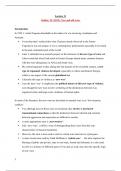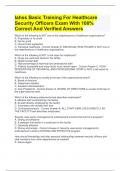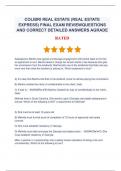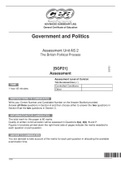Samenvatting
Summary Summaries and lecture notes for the final exam of Core module International relations (LY)
The document includes detailed summaries of all articles (except Deaton 2013) and lecture notes with slides and additional information mentioned in class. NB: this document includes lectures 11- 17, which is the material needed for the final exam.
[Meer zien]













